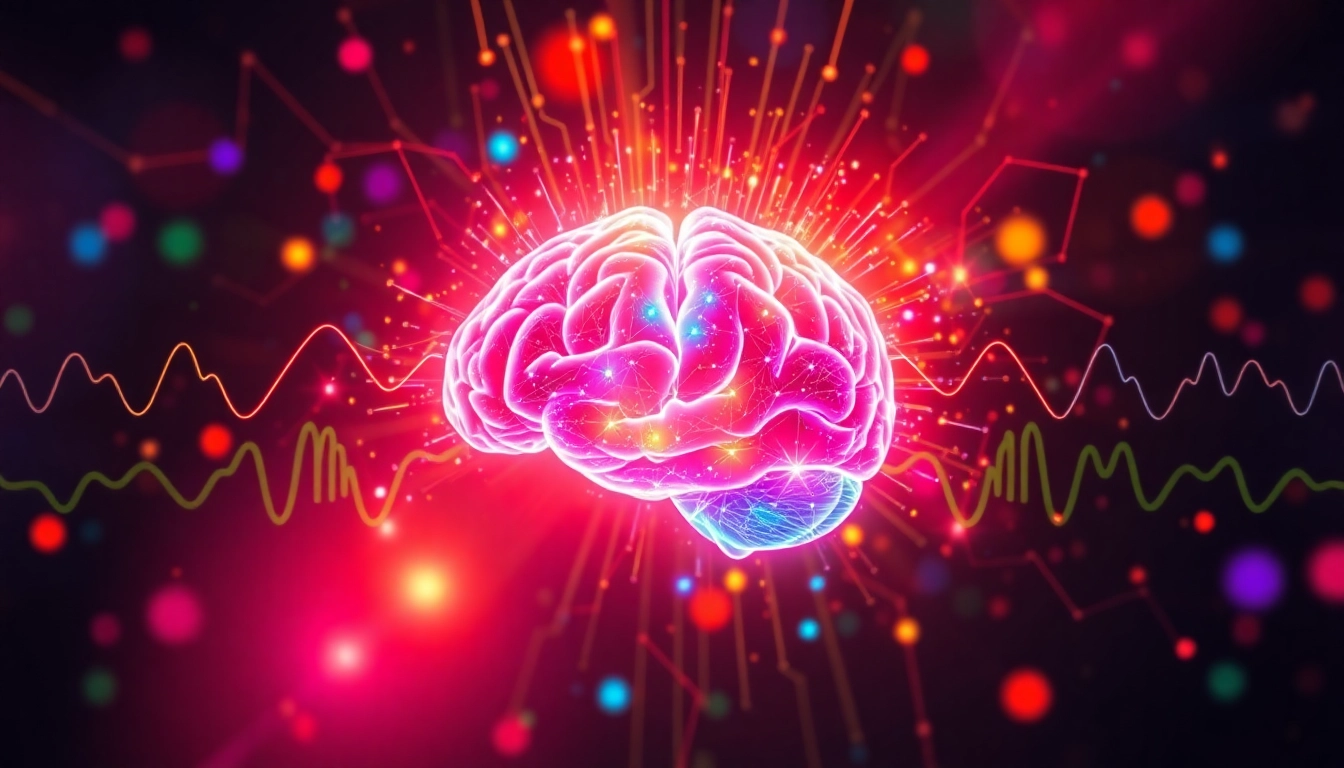Understanding Depression: Symptoms and Causes
Defining Depression and Its Impact
Depression is a multifaceted mental health disorder characterized by persistent sadness, loss of interest in activities, and a range of emotional and physical problems. It is more than just a fleeting feeling of sadness; it can severely impair one’s ability to function in daily life. The World Health Organization defines depression as a leading cause of disability worldwide, highlighting its widespread impact on individuals, families, and communities. Those suffering from depression may struggle with various issues, including low energy, changes in sleep patterns, and difficulty concentrating, all of which can hinder day-to-day activities and relationships.
Common Symptoms of Depression
Identifying the signs of depression is crucial for effective intervention and treatment. Common symptoms include:
- Persistent Sadness: A continuous feeling of sadness or emptiness.
- Loss of Interest: A marked disinterest in activities once enjoyed, including social interactions and hobbies.
- Fatigue: Reduced energy levels and chronic tiredness that interferes with normal functioning.
- Sleep Disturbances: Difficulty falling asleep, staying asleep, or oversleeping.
- Appetite Changes: Significant weight loss or gain due to changes in appetite.
- Difficulty Concentrating: Trouble focusing on tasks or making decisions.
- Feelings of Worthlessness: Strong feelings of guilt or worthlessness, often leading to self-criticism.
- Suicidal Thoughts: Thoughts of death or suicide, which require immediate attention.
Recognizing these symptoms can be the first step in seeking help, and addressing these issues early can lead to better outcomes.
Potential Causes and Triggers
The causes of depression are complex and can vary widely from person to person. Some common factors include:
- Genetics: A family history of depression can increase one’s risk.
- Chemical Imbalance: Changes in brain chemistry and hormonal fluctuations may influence mood and behavior.
- Life Events: Trauma, loss, and significant life changes, such as divorce or job loss, can trigger depression.
- Chronic Illness: Long-term health conditions can contribute to feelings of hopelessness.
- Substance Abuse: Alcohol and drug use can exacerbate or precipitate depressive symptoms.
Understanding these causes can help individuals and caregivers create more effective intervention strategies when dealing with depression.
Recognizing When to Seek Help for Dealing with Depression
Identifying the Signs of Severe Depression
While many people may experience symptoms of depression at some point in their lives, not everyone will require professional help. However, recognizing when symptoms become severe and warrant attention is crucial. Signs that professional help may be necessary include:
- Symptoms lasting more than two weeks.
- Severe functional impairment in personal or professional life.
- Suicidal thoughts or self-harming behaviors.
- Inability to carry out daily responsibilities.
If you or someone you know exhibits these behaviors, it’s critical to seek professional assistance.
Understanding Professional Support Systems
Professional support for dealing with depression can take many forms. Varied approaches can include:
- Therapy: Options such as cognitive-behavioral therapy (CBT), interpersonal therapy, and psychodynamic therapy can help address the thoughts and behaviors contributing to depression.
- Medication: Antidepressants, prescribed by healthcare providers, can help correct chemical imbalances in the brain.
- Support Groups: Connecting with others facing similar challenges can provide an essential support network.
Each person’s journey with depression is unique; thus, exploring different treatment modalities is key to finding the right fit.
Utilizing Resources for Immediate Assistance
In crises or emergencies, immediate resources can aid in dealing with depression. Hotlines staffed by mental health professionals can offer support and resources 24/7. Increasing awareness of community services, including counseling centers and support groups, can provide accessible alternatives for individuals in distress.
Coping Mechanisms: Practical Tips for Dealing with Depression
Self-Care Strategies to Implement Daily
Incorporating daily self-care strategies can significantly alleviate symptoms of depression. Key practices include:
- Establishing Routines: Regular schedules can provide a sense of normalcy and control.
- Limit Substance Use: Reducing alcohol and drug intake can minimize depression triggers.
- Prioritize Sleep: Aiming for consistent sleep patterns can improve mood stability.
- Engage in Hobbies: Pursuing interests can foster enjoyment and decrease feelings of isolation.
Engaging in self-care can be empowering, providing individuals with the tools necessary to manage their symptoms effectively.
Mindfulness and Relaxation Techniques
Mindfulness practices, such as meditation and deep-breathing exercises, can promote relaxation and reduce stress. Research indicates that mindfulness can change brain function and improve resilience against depressive symptoms. By dedicating time each day to mindful practices, individuals can cultivate greater self-awareness and learn to respond to emotional challenges with calm and clarity.
The Role of Exercise and Nutrition
Physical health is intricately connected to mental health. Regular exercise releases endorphins, known as “feel-good” hormones, which can enhance mood and alleviate stress. Furthermore, incorporating a balanced diet rich in nutrients can support brain health and overall well-being.
Some dietary and exercise suggestions include:
- Adopting a balanced diet with fruits, vegetables, whole grains, and lean proteins.
- Engaging in regular physical activity, even short walks, can be beneficial.
- Staying hydrated and moderating caffeine intake to ensure optimal brain function.
Building a Supportive Network for Dealing with Depression
Friends and Family: How They Can Help
A strong support system is paramount in dealing with depression. Friends and family members can assist by:
- Offering emotional support through active listening and validation of feelings.
- Encouraging involvement in social activities to combat isolation.
- Being proactive in checking on individuals who might be struggling.
Open communication about mental health challenges can strengthen relationships and foster a more supportive environment.
Support Groups and Community Resources
Support groups can provide individuals with a sense of belonging and understanding. Many community organizations offer mental health resources, including workshops, therapy sessions, and educational materials that can aid those dealing with depression. Participation in such groups can be a vital step towards recovery.
Online Platforms for Mental Health Support
Given the rise of digital resources, online platforms can be effective for finding community and support. Many forums and websites dedicated to mental health offer communities where users can share experiences and coping strategies. Some even provide access to virtual therapy sessions, making mental health care more accessible.
Long-term Strategies for Managing Depression
Developing Resilience Through Routine
Building resilience is essential for managing depression long-term. Establishing structured routines can nurture stability and reduce uncertainty, contributing to better emotional regulation. Routines may include scheduled meal times, social activities, and time allocated for leisure.
Ongoing Therapy and Medication Considerations
Continuous engagement with therapy or medication can lead to more sustained recovery outcomes. Regular consultations with healthcare providers can ensure proper management of symptoms and offer opportunities to adjust treatment plans as necessary.
Setting Goals for Continuous Improvement
Goal setting can be a motivational tool in the journey towards managing depression. By setting small, achievable goals, individuals can experience incremental successes that foster a sense of accomplishment and improvement. Regularly reviewing and adjusting these goals can also help keep individuals focused and engaged in their treatment process.
The journey of dealing with depression is deeply personal and requires understanding, compassion, and commitment. Through comprehensive support, effective coping strategies, and a robust support network, individuals can find pathways towards resilience and recovery.




